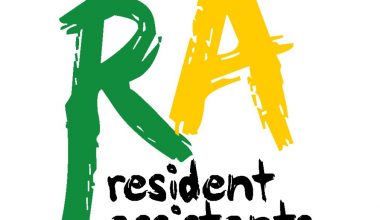As you near the end of your high school journey, you may come across different types of certificates or diplomas that you can earn. While a high school diploma is a notable achievement, you may also encounter a certificate of completion. Knowing the difference between the two and what each signifies can be confusing.
This article will explore the key distinctions between a certificate of completion and a high school diploma to help you understand the right fit for your academic and career goals.

Table of contents
- What Is A Certificate Of Completion?
- What Is A High School Diploma?
- What Is The Difference Between A Certificate Of Completion And A High School Diploma?
- How Long Does Getting a Certificate Of Completion & High School Diploma Take?
- What Are The Requirements For A Certificate Of Completion & A High School Diploma?
- Frequently Asked Questions
- Conclusions
- References
- Recommendations
What Is A Certificate Of Completion?
A certificate of completion is a document that acknowledges a person’s successful completion of a particular course, program, or training. It indicates that the individual has fulfilled the course or program requirements and gained specific skills or knowledge.
Certificates of completion are awarded for various types of programs, including vocational and technical training, continuing education, adult education, and short-term courses. These certificates may also be for students who complete high school or college-level programs but only fulfill some requirements for a diploma or degree.
The contents of a certificate of completion may vary depending on the program or course. Typically, it includes the individual’s name, the program or course’s name, the completion date, and the certifying authority’s signature. In addition, some certificates may contain information about the specific skills or knowledge the individual has gained through the program or course.
Also read: What is A Passing Grade in Middle School? Explained
What Is A High School Diploma?
A high school diploma is a credential for students who have completed their secondary education at a high school or equivalent institution. It indicates that the student has fulfilled the high school curriculum requirements and has met the graduation standards set by the school district or state education department.
To earn a high school diploma, students must typically complete a certain number of credits in various subjects, including English, mathematics, science, social studies, and electives. The specific requirements may vary by school district or state, but they ensure that students have gained basic knowledge and skills in these areas.
In addition to completing the required coursework, students may be required to pass a final examination or meet other assessment standards to demonstrate their mastery of the subject matter. Some schools may also require students to complete community service or participate in extracurricular activities to earn a diploma.
Once a student has met all the requirements, the high school will typically issue a diploma, which is a physical document that includes the student’s name, the name of the high school, the date of graduation, and the signature of a school official. This diploma proves that the student has completed their high school education and is eligible to pursue higher education or enter the workforce.
In most cases, it is the minimum educational requirement for entry-level jobs and is often necessary for admission to college or vocational training programs. With a high school diploma, individuals may have more job opportunities and higher earning potential over their lifetime.
In addition to its practical benefits, a high school diploma can also have personal and social significance. For many students, earning a diploma is a significant achievement representing years of hard work and dedication. It is also an essential milestone in transitioning from adolescence to adulthood and can provide a sense of pride and accomplishment.
Also read: What is credit recovery in high school? (Strategies with FAQs)
What Is The Difference Between A Certificate Of Completion And A High School Diploma?
Certificates of completion and high school diplomas are two different credentials that indicate different levels of education and achievement. While both are important in their ways, they have some key differences.
| Certificate Of Completion | High School Diploma |
| It is awarded for completing a specific course or program. | It is awarded for completing all required coursework and meeting graduation requirements from a high school. |
| It may not be highly recognized or valued by employers or educational institutions. | Employers and educational institutions value it. |
| It may provide additional skills or knowledge but is not required for most entry-level jobs or career advancement. | It is necessary for many entry-level jobs and essential for most career opportunities. |
| It may be a helpful accomplishment or personal achievement, but not as significant as a high school diploma. | Often seen as a significant milestone and source of personal pride. |
Also read: What Is Seminary School? Why I will prefer Seminary School
How Long Does Getting a Certificate Of Completion & High School Diploma Take?
Duration For Certificate of completion:
The length of time it takes to obtain a certificate of completion can vary greatly depending on the type of program or course you are taking. Certificates of completion are generally awarded for completing short-term training courses or programs, such as vocational or technical programs, online courses, or continuing education classes.
The duration of the program or course will play a significant role in determining how long it takes to obtain a certificate of completion. Some programs may take a few weeks or months, while others may take a year or longer. The length of the program will depend on the type of training, the level of difficulty, and the amount of material covered.
Once you have completed the necessary coursework, you must meet any other requirements to receive the Certificate of completion. This may include passing a final exam, submitting a final project or paper, or completing several hours of hands-on training or internship.
Once you have met all the requirements, the institution or organization offering the program will typically issue the Certificate of completion within a few weeks. However, the time frame may vary depending on the institution and the administrative processes they have in place.
If you are taking an online course, you may receive your Certificate of completion immediately after completing the course requirements, as many online programs offer instant certification. However, some online programs may require a waiting period before issuing the Certificate.
It is important to note that not all programs or courses offer certificates of completion. Some programs may offer certificates of achievement or completion, which may have different requirements and time frames for issuance.
Also read: What is the Hardest Year of High School? How to Scale Through
Duration For High School Diploma:
The time it takes to earn a high school diploma varies depending on factors such as the type of high school program, the number of credits required, the student’s academic performance, and their availability to attend classes regularly.
Traditionally, most high school programs run for four years, starting from grade 9 to grade 12. In these four years, students take courses that fulfill the minimum credit requirements set by their state or local education department. The average number of credits required for a high school diploma in the United States is 24, each representing a course or subject studied in one semester. However, the number of credits required may vary depending on the state or the school district.
Assuming a student takes a full course load of six to seven credits per year, they will earn 24 credits after four years of high school. In this case, earning a high school diploma would take four years. However, some students may take longer to complete their high school education for various reasons, such as repeating a grade, taking a semester or year off, or transferring to a different school.
Moreover, there are alternative programs that allow students to earn their high school diplomas faster. For instance, some high schools offer summer programs that enable students to earn extra credits during the summer months. Additionally, some schools offer online classes that allow students to complete their coursework at their own pace, which can accelerate the time it takes to earn a high school diploma.
Also read: What is a Quaker School? (Full Explanation with FAQs)
What Are The Requirements For A Certificate Of Completion & A High School Diploma?
A certificate of completion and a high school diploma are critical documents that signify that the student has met all the requirements for graduation.
Here are the requirements for a certificate of completion and a high school diploma:
Age Requirement
In most US states, students must be at least 17 before being awarded a high school diploma. However, some states may allow students to graduate as early as 16 with special permission.
Course Requirements
Students must complete various courses in various subjects to qualify for a diploma or Certificate of completion. The courses typically include math, English, science, social studies, and physical education.
Credit Hours
Students must complete a certain number of credit hours to earn a high school diploma or Certificate of completion. The number of credit hours required varies from state to state. Students must complete 24-26 credit hours to earn a diploma.
Grade Point Average (GPA)
Students must maintain a certain GPA to qualify for a diploma or Certificate of completion. The GPA is calculated based on the grades earned in all high school courses the student completes. The minimum GPA required to graduate is usually 2.0, although some schools may require a higher GPA.
Standardized Tests
In addition to completing the required coursework and maintaining a certain GPA, students may be required to pass one or more standardized tests to qualify for a diploma or Certificate of completion. These tests include the SAT, ACT, or state-specific tests.
Attendance
Schools require students to attend a certain number of classes to qualify for a diploma or Certificate of completion. The number of days a student can miss varies from state to state, but most schools require at least 90% attendance.
Community Service
Some schools may require students to complete a certain number of community service hours to qualify for a diploma or Certificate of completion. This requirement encourages students to give back to their community and develop leadership skills.
Behavior
Students must adhere to the school’s code of conduct and demonstrate good behavior to qualify for a diploma or Certificate of completion. Students who engage in serious misconduct or violate school policies may be denied graduation.
Also read: What is a Parochial School? Best 2023 Explanation
Frequently Asked Questions
A Certificate of Completion is a document for students who have completed the required coursework for their high school program but still need to meet all the graduation requirements necessary to earn a high school diploma. This document acknowledges that the student completed their coursework but still needed to meet all the requirements for a high school diploma.
A High School Diploma is an academic credential awarded to students who have completed all the graduation requirements set by their school district or state. It signifies that the student has completed their high school education and has achieved the required academic standards.
The main difference between a Certificate of Completion and a High School Diploma is that students have met all the academic requirements to complete their high school education. In contrast, a Certificate of Completion acknowledges that the student has completed their coursework but still needs to meet all the requirements for a high school diploma.
It depends on the college or university. Some colleges and universities may accept students with a Certificate of Completion, but many prefer students with a high school diploma. Students with a Certificate of Completion may need to meet additional requirements or complete additional coursework to be eligible for admission to a college or university.
Can a student who has earned a Certificate of Completion later earn a high school diploma?
Yes, a student who has earned a Certificate of Completion can later earn a high school diploma by completing the remaining graduation requirements necessary for a diploma. .
No, a Certificate of Completion is not equivalent to a High School Diploma.
Conclusions
In summary, while certificates of completion and high school diplomas are significant achievements, a high school diploma is the more comprehensive and valuable credential that opens up more opportunities for students in their future educational and professional pursuits.
References
- wikipedia.org – High school diploma
- understood.org – The difference between a high school diploma and a high school certificate
- uscareerinstitute.edu – What Are the Different Types of High School Diplomas?
Recommendations
- What Is the Classical School of Criminology? 2023 guides with FAQs
- What is a Military School? Things to know before joining a military school
- What are the Different Types of Higher Education Degrees in 2023?
- What is Comparative Education? Full Explanation With FAQs
- What Does an ICT Specialist Do in 2023?


